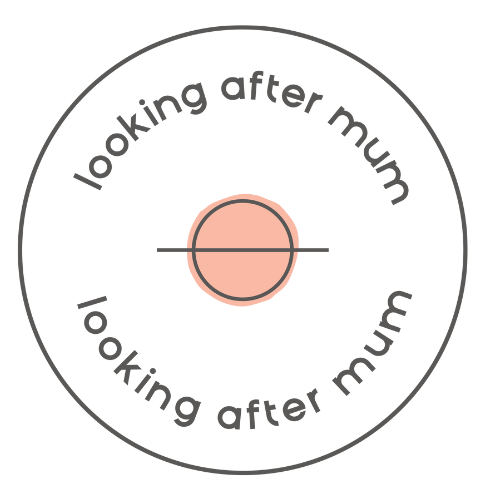Overwhelmed as a new mum? | How to prevent mum burnout as a highly sensitive person
Being a mum can feel absolutely overwhelming. Particularly if you were a highly sensitive person pre-pregnancy, and have now become a highly-sensitive mum! The sound of your baby crying, seeing messy and flashing toys strewn around the floor, whilst trying to balance the high emotional needs of motherhood, can feel totally overstimulating. This can leave you feeling burned out.
As a highly-sensitive mum, you may notice that you regularly feel tense and anxious or as though your mind feels foggy. This is likely due to your nervous system feeling dysregulated, leaving you edgy and uncomfortable. Whilst the demands of motherhood are very real, it is possible to adapt your environment to make you feel calmer and more regulated. See these 10 practical tips for supporting you to prevent burnout as a highly sensitive mother.
1. Create a comfortable space in your home.
Think soft cushions, low lighting, calming smells. Make this a place that feels like a retreat to you when you are feeling overwhelmed or take a few minutes break from the demands of motherhood. You may choose to plan regular regulation breaks where you go to your retreat for a few minutes. Or, you may use this at highly stressful times, such as after an argument or when you've been looking after the baby all day.
2. Avoid scary movies.
This is one that I am currently struggling with myself. I've always loved scary films, and it is one of the ways that my partner and I enjoy connecting. But post-baby, my nervous system can't hack it! And that's ok. As a highly sensitive person, I don't need to add any extra tension to an already overstimulated mind. Maybe I'll start watching scary films or TV shows again in the next chapter of my life, but for now Emily In Paris and Queer Eye it is!
3. Wear earplugs.
This can be particularly useful when your baby can't be soothed, and the crying keeps coming. With earplugs, you will still be able to hear your baby, but it can just help to take the edge off the sound to support you to not feel overstimulated. This can keep you calm and grounded, which is what you and your baby will need at this time.
4. Alone time is essential.
Scheduling time into your day to reset is so important. There are clear challenges to this. However, time alone can often be created if you plan with a partner or other family or friends to take to yourself each day. If possible, aim to be out of the earshot of the baby because as a highly sensitive mum, you are likely to remain vigilant for the sounds of your little one. It can be great if a partner or other carer can take the baby for a walk, they get some bonding time, and you get some rest.
5. Don't use all your nap time tidying
Although a tidy house may be important, don't spend all your time clearing up. I'd bet if you were to spend all your spare moments keeping on top of the house, you would get no time to relax. Relaxation time is essential to help you through this stage as a new mum and allow your body to re-regulate. Here's a tip. During nap time, set yourself a timer for 10 minutes. Efficiently sort and tidy during this time, then use the rest of the time to relax. Your long term mental health will thank you for it!
6. Avoid numbing behaviours
As a highly sensitive mum, it is entirely natural to turn to unhelpful coping strategies such as alcohol or over-eating to manage difficult feelings. The build-up of tension in your body can create the need to numb this feeling, usually with whatever unhealthy coping strategy is available. However, these behaviours only provide short term relief. Instead, try to identify a set of more helpful behaviours. Breathing exercises, hot baths, talking with friends can all be beneficial alternative coping strategies.
7. Spend time in nature.
Nature is great for most people, but it can be a game-changer for us highly sensitive mothers. This outside time is an effective way to re-regulate your nervous system and provide you with a sense of calm. In addition to managing to overwhelm, it is likely to boost your mood, leaving you feeling more calm and content as you head home.
8. Get organised.
Do you ever find yourself scrambling and rushing for those times that you need to be somewhere on time? This can only equal stress. If you need to go out with your baby, try to lay out what you need the night before. You can try packing a bag and putting it by the door. Set your alarm 15 minutes earlier than you typically would. Put your own clothes in easy reach so that you can reduce decision making. These steps will have you feel less frantic and more calm.
9. Communicate your needs to others.
If you have a partner, let them know what you need. I have personal experience of this. My partner is not sensitive. He does everything loudly and in a hurry. The baby's crying doesn't bother him. He would often feel confused by my seemingly extreme reactions to our daughter crying whilst the TV was on loudly (for example). It helped when I showed him some articles about highly sensitive people, and he recognised my traits. This increased his level of understanding of my needs. Letting partners know what we need ahead of time is preferable to doing it when triggered. For example, if you get easily overwhelmed in an argument, let your partner know that you need 10 minutes to process your thoughts. If you have had these conversations when you are both calm, it is much easier to draw on these exchanges in the more difficult moments.
10. Be kind to yourself.
Recognise that being sensitive isn't a negative trait. As well as the positive attributes it provides you (I bet you're a really good friend and a great listener), other parts of you require tenderness. Rather than criticising yourself, focus on making environmental adaptations to best support your needs. Be patient with yourself as you make this transition to motherhood. It is ok to take time to adjust. You are doing much better than you think.
Are you regularly feeling overwhelmed and overstimulated? This is an aspect of motherhood that I regularly support my clients to feel less anxious and much calmer. If you would like to learn more about 1:1 therapy sessions, then click on the link below.




